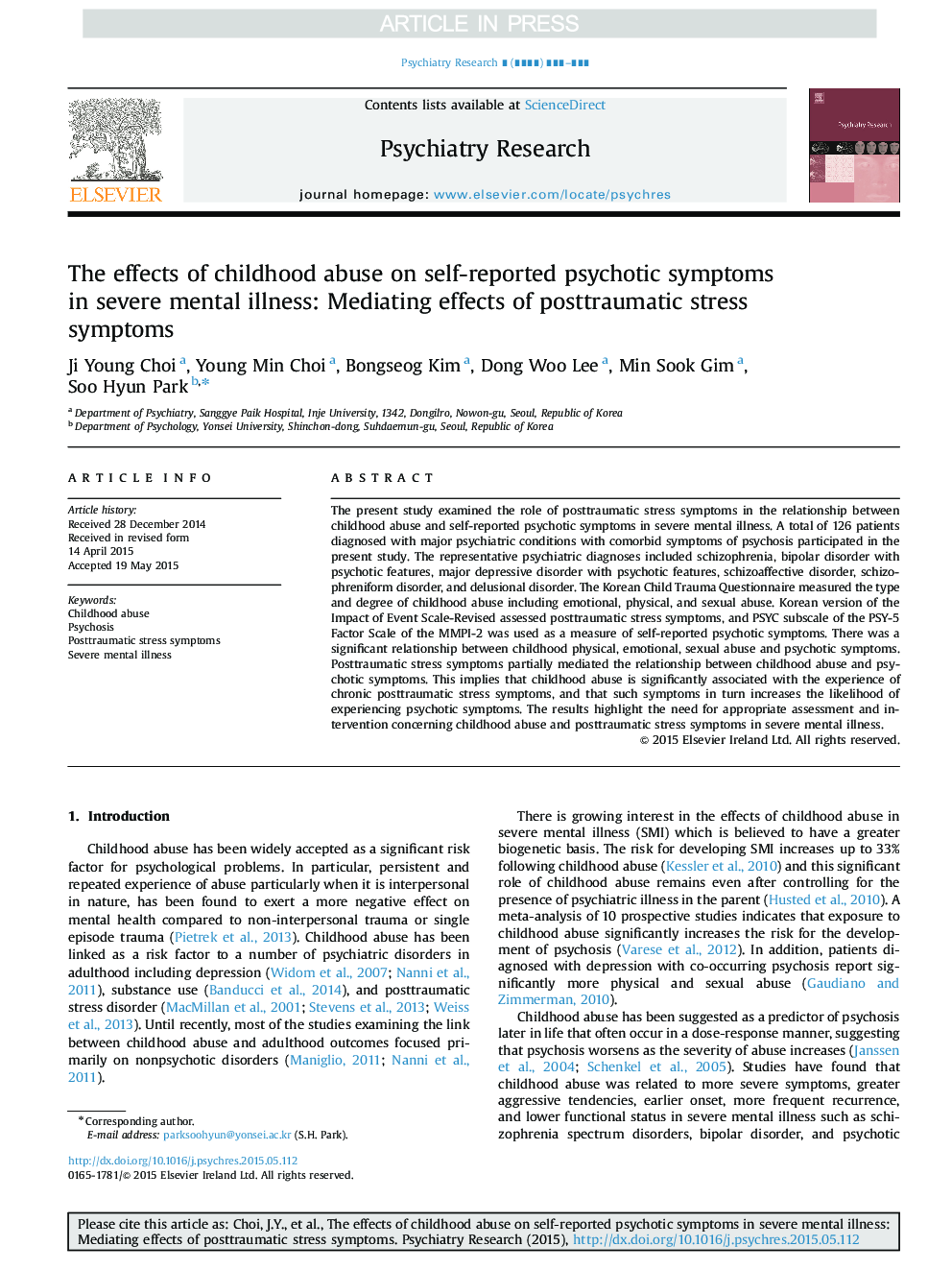| Article ID | Journal | Published Year | Pages | File Type |
|---|---|---|---|---|
| 6814185 | Psychiatry Research | 2015 | 5 Pages |
Abstract
The present study examined the role of posttraumatic stress symptoms in the relationship between childhood abuse and self-reported psychotic symptoms in severe mental illness. A total of 126 patients diagnosed with major psychiatric conditions with comorbid symptoms of psychosis participated in the present study. The representative psychiatric diagnoses included schizophrenia, bipolar disorder with psychotic features, major depressive disorder with psychotic features, schizoaffective disorder, schizophreniform disorder, and delusional disorder. The Korean Child Trauma Questionnaire measured the type and degree of childhood abuse including emotional, physical, and sexual abuse. Korean version of the Impact of Event Scale-Revised assessed posttraumatic stress symptoms, and PSYC subscale of the PSY-5 Factor Scale of the MMPI-2 was used as a measure of self-reported psychotic symptoms. There was a significant relationship between childhood physical, emotional, sexual abuse and psychotic symptoms. Posttraumatic stress symptoms partially mediated the relationship between childhood abuse and psychotic symptoms. This implies that childhood abuse is significantly associated with the experience of chronic posttraumatic stress symptoms, and that such symptoms in turn increases the likelihood of experiencing psychotic symptoms. The results highlight the need for appropriate assessment and intervention concerning childhood abuse and posttraumatic stress symptoms in severe mental illness.
Related Topics
Life Sciences
Neuroscience
Biological Psychiatry
Authors
Ji Young Choi, Young Min Choi, Bongseog Kim, Dong Woo Lee, Min Sook Gim, Soo Hyun Park,
